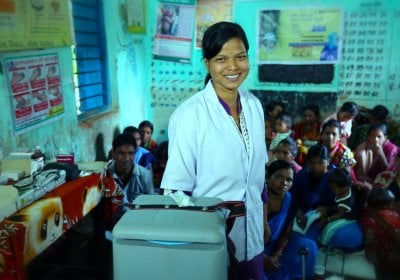Establishing National AMR Surveillance Systems

The growing public health threat of antimicrobial resistance (AMR) led the World Health Assembly to develop the Global Action Plan (GAP) in 2015 – endorsed across all member countries. Among the five key strategic objectives mentioned in GAP, AMR surveillance is one of the essential elements.
The early launch of the Global Antimicrobial Resistance and Use Surveillance System (GLASS) supported countries to initiate AMR surveillance at country level. Besides this international engagement, there is dire need to establish national AMR surveillance systems while looking at the local challenges and finding the best solutions.
This seminar by Dr Afreenish Amir will briefly cover the various AMR surveillance systems established in LMICs and HICs. There will be discussion on:
• Core elements of AMR surveillance that are required to establish the system
• What are the attributes/characteristics of a good AMR surveillance system?
• What key elements should be considered while developing Monitoring and Evaluation Framework?
• Types of the AMR surveillance including isolate based surveillance and sample based surveillance
• Usage of AMR surveillance data including trend monitoring and policy-making
• Challenges to establish an AMR surveillance system
Speaker
Dr Afreenish Amir, National Institutes of Health, Pakistan
Dr Afreenish Amir (MD, M.Phil (Microbiology), MPH, PhD (Microbiology) is a medical microbiologist with over thirteen years of experience in clinical microbiology and infectious diseases; currently working as Technical Officer AMR and Project Director National Fungal Disease Surveillance System at National Institutes of Health, Pakistan. She is working on implementation of National Action Plan on Antimicrobial Resistance and IPC, GLASS, AMR and AMC Surveillance, Stewardship and Advocacy in Pakistan. She has been engaged in Pakistan AMR Surveillance System (PASS), Candida auris fungal diagnostics, Asia Pathogens Genomics Initiative, Tricycle One Health AMR Surveillance Project (WHO), Environmental Surveillance of Cholera, LQMS trainings and National Antimicrobial Stewardship Program. She has 55 publications in national and international journals and many are underway. She is a Harvard Kennedy School and GCSP Geneva alumna (on Global Health Security), GIBACHT fellow on biosafety and biosecurity (Germany), Lead Auditor ISO 9001:2015 (CQI, IRCA UK), Chair Emerging Leaders program in Infectious Diseases ISID (USA), Visiting Faculty Rawalpindi Medical University, member of "WHO Advisory Group on the Bacterial Priority Pathogen List", member of “expert Group for WHO Global AMR Research Agenda in human health”, Expert panel in assessing innovation needs for workhorse antibacterial drugs (CARBx, CGD), Pakistan Biological Safety Association, Federal Region Chapter Head, Board Director for Mehnaz Fatima Foundation Gilgit and Consultant Clinical Microbiology for American Society of Microbiology USA.
Admission
Contact


